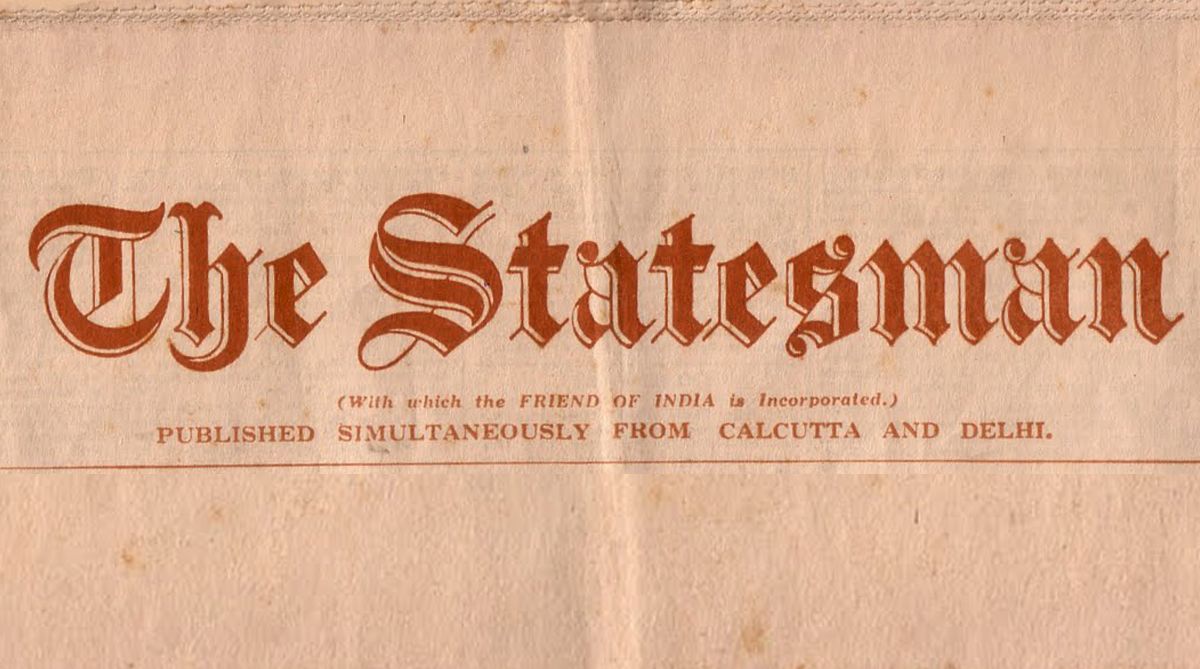A New Day, A New Dawn
There is a surprise for the readers. A special Poila Boishakh gift from none other than West Bengal chief minister Mamata Banerjee. Who has written a piece for this special edition.
On this day a century ago, these were some of the news items The Statesman readers got to read about India and the world.

HOLLAND AND THE EX-KAISER
To The Editor Of The Statesman
SIR, – To judge from the way in which the flower of the local Bar has received the ipse dixit of Sir Harry B. Poland that the Kaiser is safe, being in Holland, one would imagine that Sir Harry was a second Grotius, which he is not, although since he was called to the Bar (in 1851) he has often written in favour of much-needed reform of English law. To a plain man it does not appear to be necessary to call for the extradition of the Kaiser in order to ensure his trial. He is a pirate – hostis humani generis – and, as such, is triable by the laws of the country in which he is found, and, on proof of his crimes, is liable to the death-penalty. It is beside the question to argue that the U-boats flew the German flag, for this merely protects their crews from punishment for injuries done to the ships and crews of enemy belligerents, of whom certainly Norway was not one.
Advertisement
W.S.
Calcutta.
HOMEWARD PASSAGES
To The Editor Of The Statesman
SIR, – It is very interesting to read from day to day in The Statesman of the removal of various restrictions in connection with leave ex-India, but I think the greatest restriction at the present time is the exorbitant rates of passages. The subordinate or upper subordinate who has had to bear the greatly increased cost of living, with no war bonus, now finds himself in a position to obtain his long overdue leave, but is held up by the great financial outlay necessary to secure passages. We read a little while ago that the extra pound 25 and pound 16 on first and second class fares, respectively, was not going into the pockets of the shipping companies. In the circumstances now existing one wonders for what purpose this extra rate is to be extorted from those who can ill afford to pay it and who find it necessary to proceed to Europe on account of family affairs or health.
A WOULD-BE PASSENGER.
Jamalpur.
THE GREAT AEROPLANE FLIGHT
To The Editor Of The Statesman
SIR, – If the Handley-Page biplane comes to Calcutta, I would like to suggest that this would be a good opportunity to obtain money for the several War Funds for disabled soldiers and sailors which are being advertised at present. If the machine were put on exhibition at different rates to suit all classes, a considerable sum should be obtained. Moreover short flights for passengers might be arranged at Rs 50 per head, and, as this is the first machine which has flown to this country and the money spent would be for a good cause, there ought to be a rush for the novelty of the trip.
STINGAREE.
Calcutta.
THEATRE BY-LAWS
To The Editor Of The Statesman
SIR, – On going further into this matter I find that under the Calcutta Municipal Act of 1899, Section 559 (52), the Corporation has no power to compel theatres, etc., to take out licenses. If the erection of the building has been sanctioned, anyone can use it for theatrical performances, and under section 561 no higher fine than Rs 20 can be inflicted for any breach of the by-laws. There is therefore no serious penalty for breaches of the by-laws at present, but the taking out of licenses is provided for in the new Act, which is now under discussion, and I hope also that the maximum fine will be raised considerably.
G. MORGAN.
10, Wood Street, Calcutta.
Advertisement